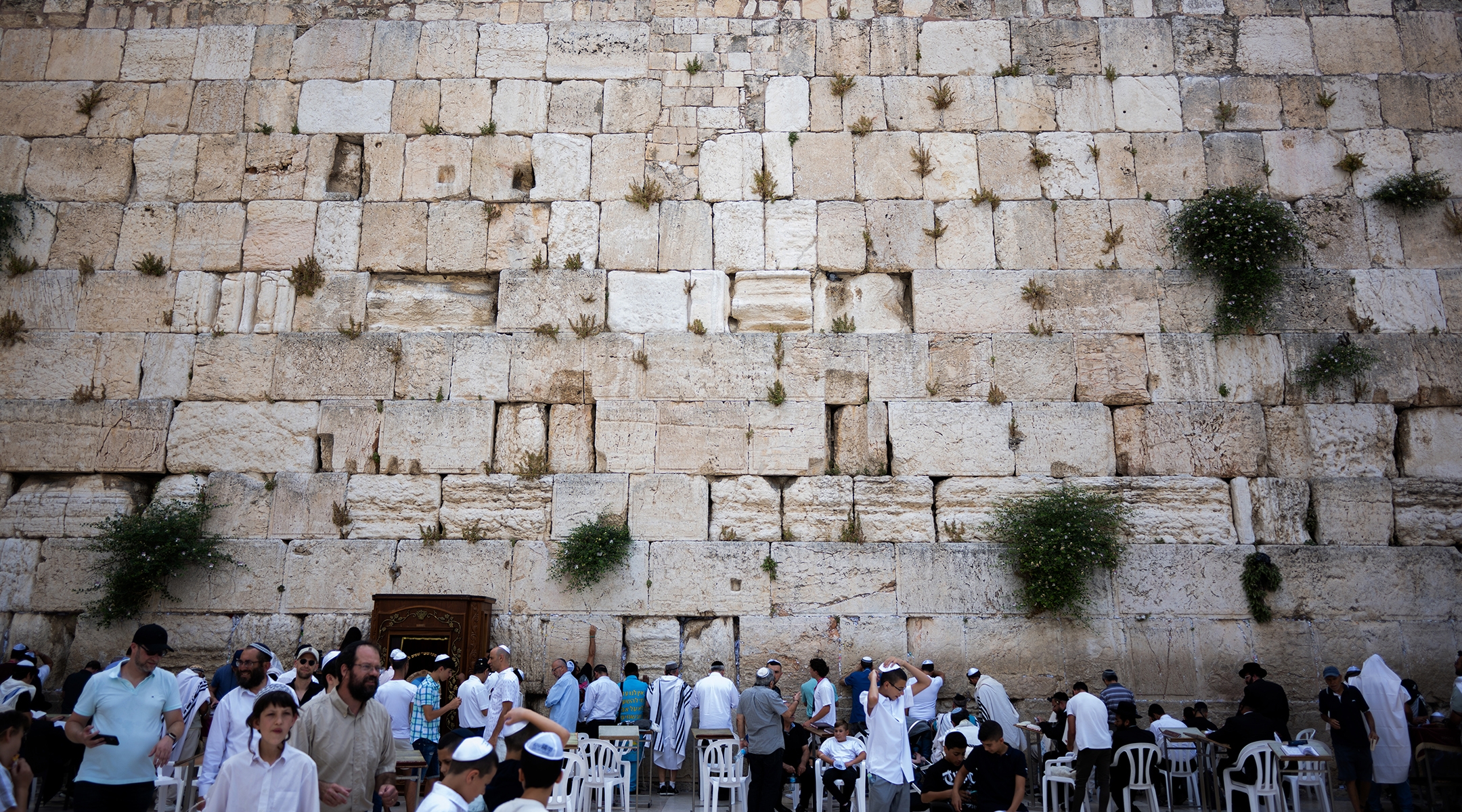Should we still recite the Prayer for the State of Israel if we disagree with its government?
A government and its policies should have little to do with the religious significance of Israel and our support for it

Jewish worshipers pray at the Western Wall in the Old City of Jerusalem, June 13, 2022. Photo by Alexi Rosenfeld/Getty Images
Re: “Why this Zionist rabbi has stopped saying the Prayer for the State of Israel” by Jodi Rudoren
To the editor:
Should we pray for the State of Israel? I certainly think so, but some of my rabbinic colleagues have proclaimed that, in light of their disagreement with Israel’s new governing coalition, their congregations will stop reciting the usual prayer for the State of Israel. That prayer was written in 1948 by some combination of Chief Rabbis Isaac Herzog and Ben-Zion Meir Hai Uziel and edited by Noble laureate Shai (S.Y.) Agnon. For decades, its prominent recitation on Shabbat and holiday mornings has been de rigueur at Zionist congregations.
“How can we pray for the success of a government with which we disagree so vehemently? How can we claim that the State of Israel represents the ‘first flowering of our redemption’ (reishit tz’michat ge’ulateinu)? This is not the redemption we have been praying for!” So claim those who have stopped reciting it.
This is hardly the first time that people who disagree with an Israeli government have proposed omitting the prayer. The suggestion has been made several times by both the right and the left. In the early 1990s, when Israel was in negotiations with the PLO for what became the Oslo Accords, prominent religious right-win Zionist rabbis proposed omitting the prayer. In 1995, with Prime Minister Rabin’s assassination, rabbis on the left began omitting it. In 2005, some on the right again omitted it in relation to the disengagement from Gaza. And now, with the ascendance of a far-right government, the pendulum has swung once again.
But this misguided proposal is based on two mistakes.
First, the prayer is not about any government. There are prayers about governments which have been recited for centuries by diaspora Jewish communities. Commonly known as “Prayer for our Government” or the “Prayer for our Country,” they are explicit petitions to God that He bless the leaders of government. Often, such a prayer was mandated by the governments themselves, and congregations recited it whether or not they supported their foreign rulers (imagine praying for the czar during times of pogroms).
However, the beautiful prayer that we recite for Israel is hardly a prayer for Israel’s government. It is a prayer for peace in the state, its inhabitants, the land, the nation; it is a prayer about the Jewish people’s national and spiritual aspirations. It is decidedly not a prayer about a specific individual or the preservation of any government. One line in the prayer does beseech God to send His light and His truth to Israel’s leaders and ministers — but wouldn’t we wish that for any government?
Second, the expression that declares Israel to be a part of the redemptive process includes many qualifications. The prayer does not ask God to bless the State of Israel “which marks our redemption” or even “which marks the flowering of our redemption.” There are two qualifications to redemption: reishit (the beginning of) tz’michat (the flowering or budding) ge’ulateinu (our redemption). The Chief Rabbis wisely qualified any attributions of redemption so as to not make any bold theological claims. Whatever the government may be, it is self-evident that the ingathering of the Jewish people to the land of Israel in which we govern ourselves is of great historic and national significance.
I understand, in principle, how one could view the state as having no religious or redemptive significance. However, it is not reasonable to believe that Israel represented the earliest stages of a national redemptive process with one government but not the next. Which government happens to be elected and what their specific policies might be have little to do with the religious significance of the state of Israel and our support for it.
The fact is that we commemorate and celebrate partial successes. The exodus from Egypt was only a first step toward redemption, and we celebrate Passover. Shavuot too celebrates a first step — there was no guarantee the Israelites would keep the Torah and fulfill its commandments. Similar caveats are true for the rabbinic holidays of Hanukkah and Purim. The story of the Jewish people in the land of Israel does not conclude with the standing of the state today. But it is an important part of our story, one worth celebrating.
Actions of any government that run counter to our values and ideals must give us pause, and we have every right to disagree and protest in response. But one government or another does not change the significance of the state of Israel in broader Jewish history, and we don’t need to stop saying that it is the beginning of the beginning of a process. We certainly should not stop praying for the state, its people, our land, or for God’s light to help those who lead it.
— Rabbi Roy Feldman
Congregation Kehilath Jeshurun
















